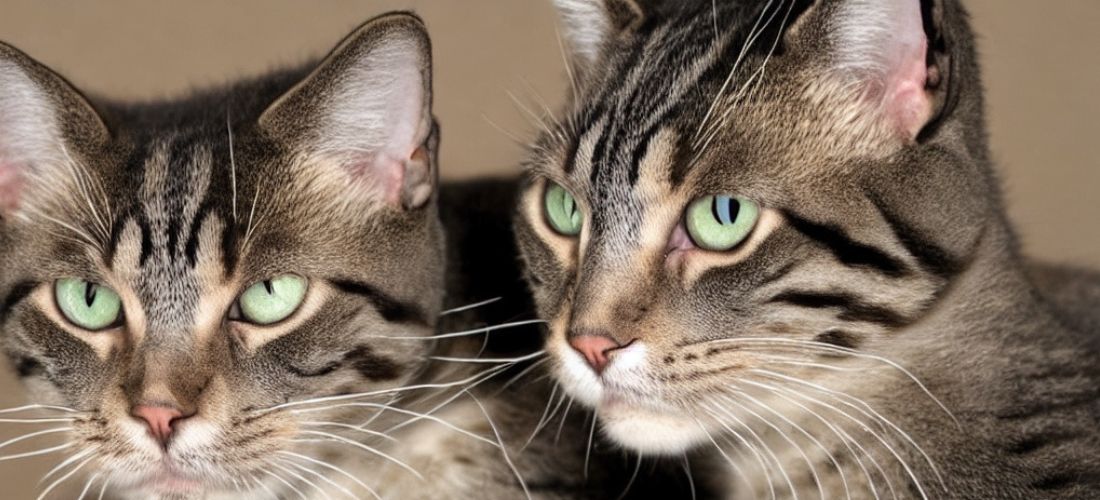What is the best cat food for Sensitive stomach? Cats are renowned for their discerning palates and delicate digestive systems. While they may seem to possess an insatiable appetite for certain treats or flavors, many felines struggle with sensitive stomachs, making it challenging for pet owners to find the perfect balance between taste and digestibility. Whether your whiskered companion exhibits signs of gastrointestinal distress such as vomiting, diarrhea, or flatulence, or simply seems uninterested in their meals, choosing the best cat food for sensitive stomachs is essential to ensure their overall health and well-being.
In this comprehensive guide, we’ll delve into the intricacies of feline nutrition, explore common triggers for digestive upset in cats, and provide invaluable insights into selecting the ideal diet to soothe your cat’s sensitive stomach. From deciphering ingredient labels to understanding the importance of proper nutrient balance, we’ll equip you with the knowledge and tools necessary to make informed decisions about your cat’s diet. Say goodbye to mealtime woes and hello to a happier, healthier cat as we embark on this journey to discover the perfect food for your feline friend with a sensitive stomach.
What food is easiest for cats to digest?
Cats typically find it easiest to digest high-quality, easily digestible proteins sourced from animal meats such as chicken, turkey, or fish. These proteins contain essential amino acids necessary for feline health and are highly bioavailable, meaning they are readily absorbed and utilized by the cat’s body. Additionally, cooked eggs provide another easily digestible protein source. Carbohydrates in moderation, such as rice or oatmeal, can also be included in a cat’s diet for energy, but too much can lead to digestive issues.
When it comes to commercial cat food, options labeled as “digestible” or “sensitive stomach formula” often contain easily digestible ingredients and are formulated to be gentle on the digestive system. However, it’s essential to avoid fillers, artificial additives, and overly processed ingredients, as these can contribute to digestive upset. As always, consulting with a veterinarian is recommended for personalized dietary recommendations tailored to your cat’s specific needs.
What is the best cat food for Sensitive stomach?
When selecting cat food for a sensitive stomach, it’s crucial to prioritize ingredients that are gentle on the digestive system while still providing essential nutrients for your feline friend’s overall health. Here are key factors to consider:
Limited Ingredient Formulas:
Opt for cat foods with limited ingredients, as they minimize the potential for triggering digestive upset. Look for options that feature a single, easily digestible protein source, such as chicken or turkey, paired with a limited selection of carbohydrates and other ingredients.
Easily Digestible Proteins:
Choose cat foods containing high-quality, easily digestible proteins sourced from real meat, poultry, or fish. These proteins are rich in essential amino acids and are less likely to cause gastrointestinal discomfort compared to lower-quality protein sources or by-products.
Digestive Health Supplements:
Consider cat foods fortified with digestive health supplements such as probiotics, prebiotics, and fiber. These ingredients promote a healthy gut microbiome, aid in digestion, and may help alleviate symptoms of digestive sensitivity.
Grain-Free or Limited Grain Options:
For cats with grain sensitivities, grain-free or limited grain formulas can be beneficial. While grains are not inherently harmful to cats, some individuals may have difficulty digesting certain grains, leading to gastrointestinal issues.
Veterinary Formulated Options:
Consult with your veterinarian for recommendations on prescription or veterinary-formulated cat foods specifically designed for cats with sensitive stomachs. These options often undergo rigorous testing and contain carefully selected ingredients to support digestive health.
By prioritizing these factors and selecting a high-quality cat food tailored to your cat’s specific dietary needs, you can provide relief for their sensitive stomach while ensuring they receive the essential nutrients they need to thrive. Always monitor your cat’s response to new foods and consult with a veterinarian if digestive issues persist or worsen.
What is gentle on a cat’s stomach?
Avoiding artificial additives: Steer clear of artificial flavors, colors, and preservatives, as these can irritate a cat’s sensitive stomach.
Smooth texture: Opt for cat foods with a smooth texture, as chunky or overly processed foods may be harder for some cats to digest.
Gradual transitions: When introducing new foods, gradually transition your cat over several days to prevent digestive upset.
Easily digestible proteins: Opt for real meats like chicken, turkey, or fish, which are rich in essential amino acids and less likely to cause digestive upset.
Limited ingredients: Choose cat foods with minimal ingredients to reduce the chance of triggering sensitivities.
Digestive health supplements: Look for probiotics, prebiotics, and fiber to promote a healthy gut microbiome and aid digestion.
Grain-free or limited grain options: Some cats may benefit from formulas without grains, as they can be harder to digest for sensitive individuals.
Conclusion
The best cat food for sensitive stomachs prioritizes easily digestible proteins, limited ingredients, and digestive health supplements like probiotics and prebiotics. Grain-free or limited grain options, avoidance of artificial additives, and a smooth texture also contribute to gentle digestion. By selecting high-quality foods tailored to your cat’s needs and introducing them gradually, you can provide relief for digestive discomfort and ensure your feline companion thrives with optimal health and happiness.
FAQs
Can I give my cat yogurt for an upset stomach?
Yes, you can give your cat plain, unsweetened yogurt in small amounts to help soothe an upset stomach.
Is milk good for cats’ stomachs?
No, milk is not ideal for a cat’s stomach as many cats are lactose intolerant and may experience digestive issues.
Is rice good for cats’ stomachs?
Yes, rice can be beneficial for a cat’s stomach as a bland, easily digestible source of carbohydrates during digestive upset.

